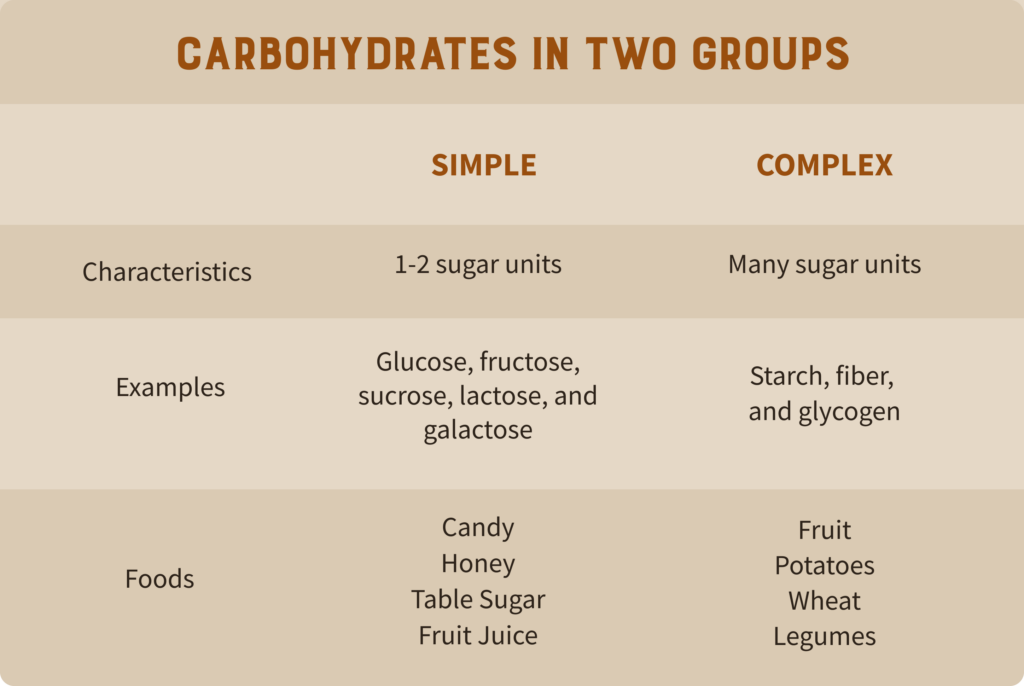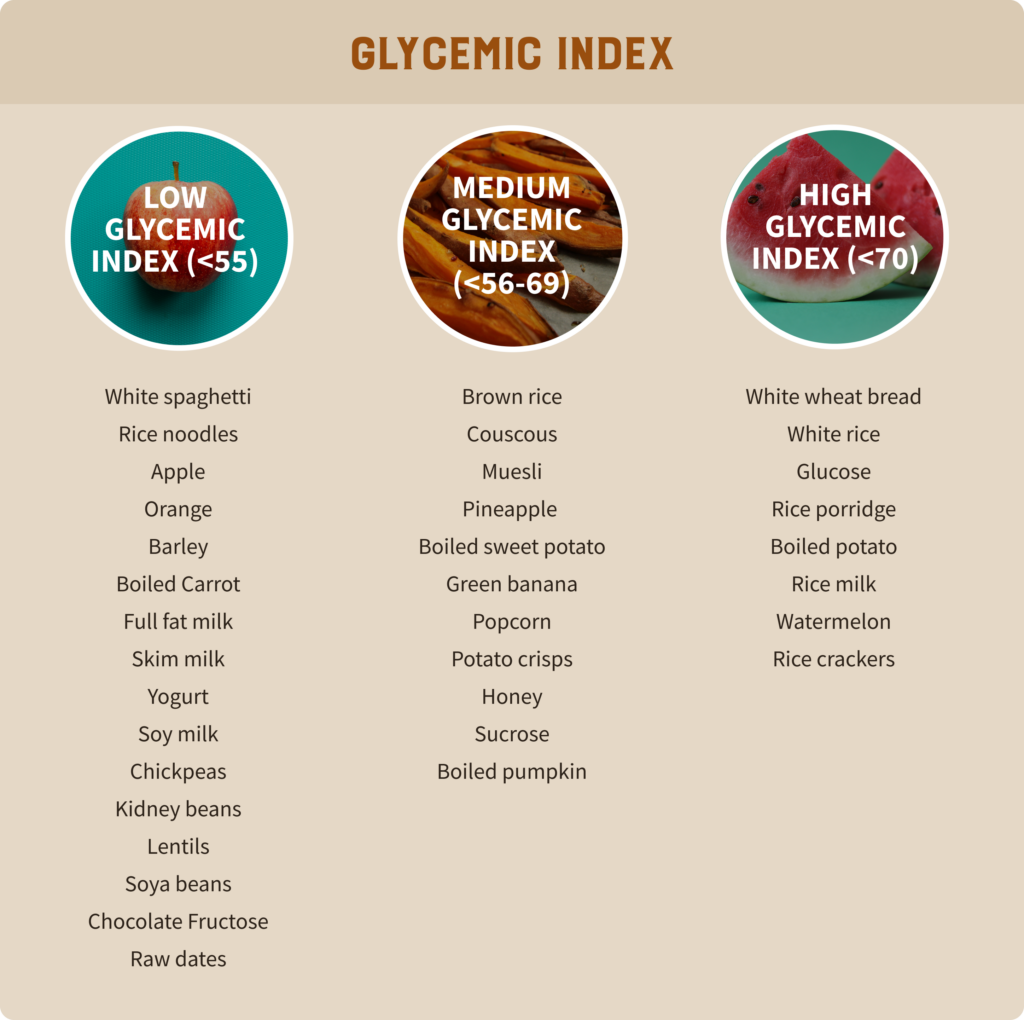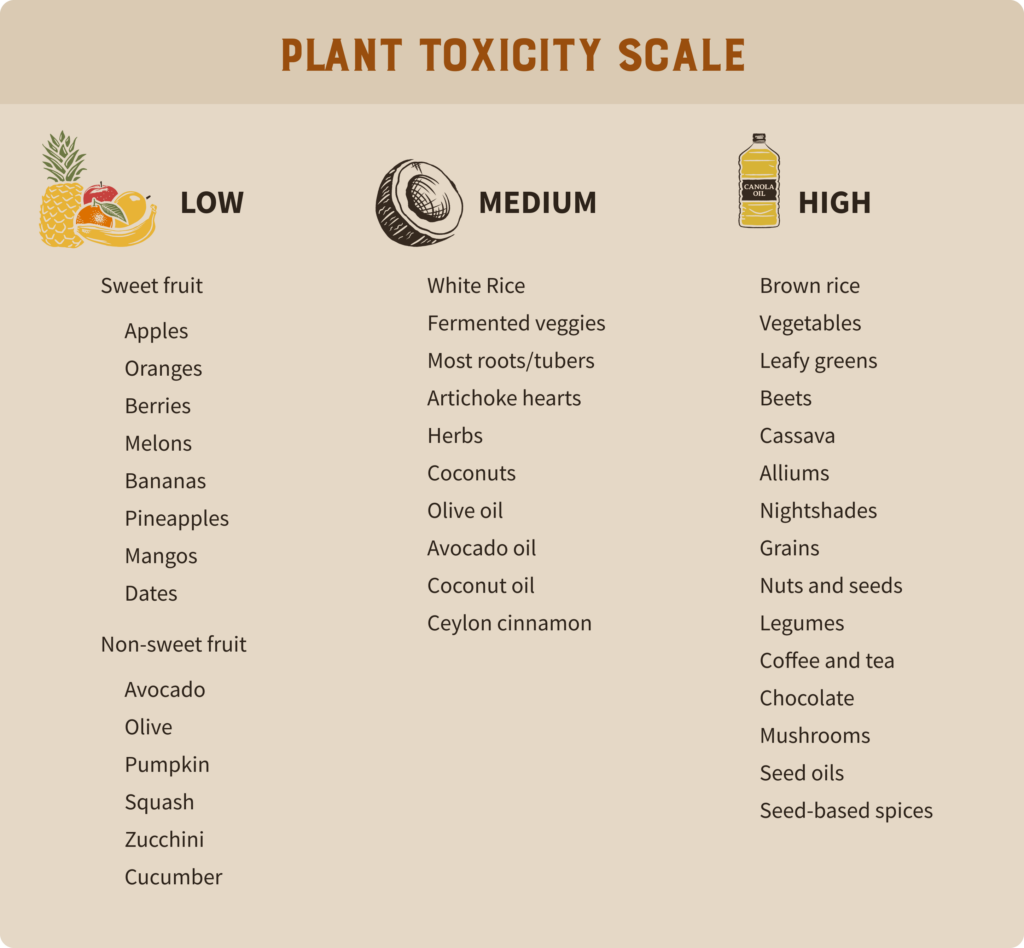PLEASE NOTE: The information in this blog is for educational purposes only. It is not a substitute for professional medical advice. Consult your healthcare provider if you’re seeking medical advice, diagnoses, or treatment.
If you’ve ever researched carbohydrates (like you are now), then you know it can be dizzying. You’ll find people supporting high-carb diets, low-carb diets, no-carb diets, and just about everything in between.
To add even more confusion, modern carb consumption would’ve been unrecognizable 100 years ago. The typical supermarket is lined with highly processed cereals, bread, pastries, soda, and other brand-new additions to the human diet.
So, are carbs bad for you?
This article will help you sift through the noise by offering insight into the benefits of carbohydrates, where to get them from, and how much you should eat to meet your needs.
We’ll also look at the role of insulin resistance and whether carbs are to blame for weight gain, diabetes, and gut issues.
Off we go!
All Carbohydrate Sources Are Not Equal
Let’s first discuss what a carbohydrate is.
Your body receives energy from food through three macronutrients: protein, fat, and carbohydrates.
Carbs are a major energy source and important for physiological processes like brain function, glycemic control, and energy metabolism (1, 2, 3). They can be obtained through animal, microbial, or plant sources such as fruits and vegetables (4).
Carbohydrates can be broken into two groups, simple and complex (5):

Modern diets are also inundated with refined carbohydrates like corn syrup, grains, or sugars that are highly processed (6).
The glycemic index is another tool that categorizes carbohydrates by their impact on blood sugar. Ranked from 0-100, high glycemic foods can cause a rapid blood sugar increase, while low glycemic foods produce a gradual increase.

Historically, carbohydrates came from fruit, vegetables, tubers, or roots. Little came from refined carbohydrates or cereal grains (7).
The new diets rich in refined starches and processed sugars promote low-grade chronic inflammation, which is tightly connected to cardiovascular disease, obesity, and diabetes (8, 9, 10).
The Elephant in the Room: Insulin Resistance
Western countries’ typical diet and lifestyle changed dramatically in the 1900’s. People are now exposed to less sunlight, obtain smaller amounts of vitamins D and K, and eat more processed carbs and fats (11).

This introduction of highly processed foods (such as high-fructose corn syrup) is connected to challenges like insulin resistance and diabetes (12).
The pancreas creates a hormone called insulin, which is essential for blood glucose regulation. When someone is insulin resistant, their muscles, liver, and fat don’t respond appropriately to insulin, meaning glucose isn’t efficiently stored or taken from the blood.
Over 100 million people in the United States have some form of insulin resistance (like type 2 diabetes, metabolic syndrome, or prediabetes). This has a few consequences related to carbohydrates (13):
- Insulin resistance can contribute to carb intolerance.
- Someone with insulin resistance may be more likely to convert carbohydrates into fat.
So, individuals with insulin resistance may have difficulty navigating the consumption of carbohydrates even if they’re not exactly to blame for the dysfunction that’s present (14). The state of your health can dramatically impact your response to carbohydrates.
4 Widespread Myths About Carbohydrates
Carbohydrates are often subject to ideas and beliefs that may contain some truth but don’t tell the whole story. In particular, these beliefs revolve around carbohydrates leading to weight gain, diabetes, gut issues, and more.
Myth #1: Carbohydrates make you fat
Major dietary changes, overeating, and sedentary lifestyles have led to a massive uptick in obesity levels worldwide (15). Almost 2 billion individuals around the world are overweight, and it’s known that obesity contributes to type 2 diabetes, cancers, and cardiovascular disease (16).
Once again, the source of your carbohydrates matters. Diets high in refined carbs may increase visceral fat (fat around your organs)(17). Increases in added sugars, refined grains, and foods with a high glycemic index are connected to greater weight gain in mid-life (18).
Meanwhile, whole food sources of carbohydrates like fruit can suppress obesity (19).
Myth #2: Carbohydrates cause diabetes
Diabetes is one of the most common chronic diseases globally, impacting over 460 million people (20).

Diabetes comes in four main types (type 1, type 2, gestational, and secondary), but about 95% of these people have type 2 diabetes mellitus, which often coincides with obesity (21).
While carbohydrate intake gets most of the blame, multiple risk factors are involved in diabetes development. These include a sedentary lifestyle, insulin resistance, obesity, genetics, and age (22). So, it’s not as simple as labeling carbohydrates as the primary cause of diabetes (23).
Recommendations vary, but it’s generally advised that type 2 diabetics consume 26-44% of their daily intake from whole food sources of carbs like fruits and veggies (24). A high-protein meal with carbs can increase insulin secretion (25).
The quality of carbohydrate intake matters greatly for diabetics, even if quantity needs to be moderated by some individuals.
Fruit is known to lessen the severity of diabetes and other obesity-related diseases (26).
Even honey may benefit those looking to manage diabetes mellitus (27). Honey offers key vitamins (B2, B6, and C) and minerals (iron, zinc, potassium) and is given to diabetics in various cultures (28).
An eight-week study found that honey consumption had beneficial effects on the body weight of people with diabetes (29).
While the classifications of diabetes differ, close attention to diet, exercise, and addressing obesity are essential for diabetes prevention and management (30).
Myth #3: Carbs make it harder to lose weight
While you can certainly lose weight on a low (or no) carb diet, numerous studies have shown that increased intake of fruits and vegetables is a crucial component of successful weight loss for women (31).

Fruit consumption is also inversely associated with weight gain (32). So, when fruit consumption increases, weight decreases!
If you’re looking to lose weight, limiting sugar-sweetened beverages, added sugars, and refined grains is a better strategy than focusing solely on the quantity of carbohydrates (33).
Myth #4: You should avoid carbs if you have SIBO or candida
Small intestinal bacterial overgrowth (SIBO) is defined as the presence of an increased (or abnormal) type of bacteria in the small intestine (34). It’s often present alongside other gut challenges and can result in symptoms like bloating, gas, nausea, and diarrhea (35, 36). Patients with SIBO may have issues absorbing nutrients, leading to challenges like nutrient deficiencies or anemia.
SIBO can be tricky to get rid of. Antibiotic treatment is generally advised to eradicate SIBO, yet almost 40% of patients don’t see their symptoms eliminated (37).

People with SIBO often adopt diets that limit carbohydrates, but scientific evidence often does not support these methods (38). While these strategies may lead to short-term improvements, they can lead to a vicious cycle of restriction and recurrence.
Candida albicans is a fungal pathogen found in most humans (39). For people with a healthy immune system, it’s harmless, but it can lead to severe infection under the proper conditions.
Although carbs are the preferred food source of candida albicans (40), a high amount of refined carbs doesn’t appear to affect candida in healthy individuals (41). Carbs have also been shown to have a protective effect against IBD, which is connected to candida (42).
Carbs may lead to aggravation for various gut issues like SIBO or candida. Still, deeper problems, such as exposure to mycotoxins (mold toxins), pesticides, or heavy metals, often need to be addressed.
An estimated 25% of crops like rice, cereals, and nuts are contaminated with mycotoxins (43). Not to mention, buildings are a significant source of mycotoxin exposure.
Mycotoxins can even contribute to the development of inflammatory bowel disease (IBD) and negatively impact nutrient absorption (44). They can also suppress immune function (45).
Similarly, heavy metals can prompt your immune system to mount inappropriate responses (46). High concentrations of metals (like lead or mercury) can result in skin rashes, a weakened immune system, respiratory issues, or stomach upset (47).
To add another factor to this equation, an estimated 4 million tons of pesticides are used yearly, some of which find their way into food and water sources (48). Exposure to these foreign substances can impact immune system development and the risk of developing IBD or irritable bowel syndrome (IBS)(49).
A 2022 study examined how glyphosate, the world’s most popular agrochemical, interacted with the gut bacteria of rats. They found that animals exposed to herbicides allowed for increased growth of opportunistic fungi in the gut (50).
If you’re struggling with persistent SIBO or candida, contacting a functional medicine practitioner or another medical professional for personalized guidance may be helpful.
The Benefits of Carbohydrates
Carbohydrates offer numerous benefits, yet data from 2020 showed that only 12% of US adults met the recommended intake of fruits, and 9% met the intake for vegetables (51).
These benefits include:
- Fruits and vegetables offer nutrients like vitamin C, antioxidants, potassium, and other unidentified components that can reduce the risk of chronic disease (52).
- Glucose (the basic form of carbohydrates) is the primary fuel source for the brain (53).
- Mental health can benefit from adequate amounts of carbs and the proper sources (54).
- Carbohydrates are beneficial for the growth and well-being of gut microorganisms (55).
While low-carb diets like carnivore or keto have their place, the diet we advocate for metabolically healthy people is an animal-based diet.
Where Should Your Carbs Come From?
The animal-based diet prioritizes low-toxicity carbohydrates such as honey, berries, avocados, olives, squash, or other seasonal sweet and non-sweet fruit.
The quantity of carbs you should consume per day varies widely based on your individual needs. Use this animal-based calculator to better gauge your daily requirements based on your goal body weight and activity level, or contact one of our health guides for additional suggestions.
At this point, you may be asking, what about vegetables?
As Paul Saladino, MD, described throughout The Carnivore Code, many plant foods produce defense chemicals that can be problematic, especially if consumed excessively.

These compounds may contribute to autoimmunity, neurological issues, digestive issues, joint pain, and more. We suggest you avoid (or limit) plant foods like leaves, stems, roots, and seeds (nuts, grains, legumes). However, some people can thrive with these foods in their diet.
The main takeaway is to avoid artificial sweeteners, refined grains, seed oils, and other highly processed foods.
The Bottom Line: Carbs are Essential, But Quality Matters
Carbohydrates are often labeled as a contributor to weight gain, diabetes, and a host of other challenges.
While there may be some truth to these claims, quality is often overlooked, even though the carb sources of today are dramatically different than what would’ve been available throughout history. The truth is major health issues have a wide variety of causes.
When consumed from the proper sources and in the right amounts, carbohydrates can be a valuable addition to your diet!
Subscribe to future articles like this: